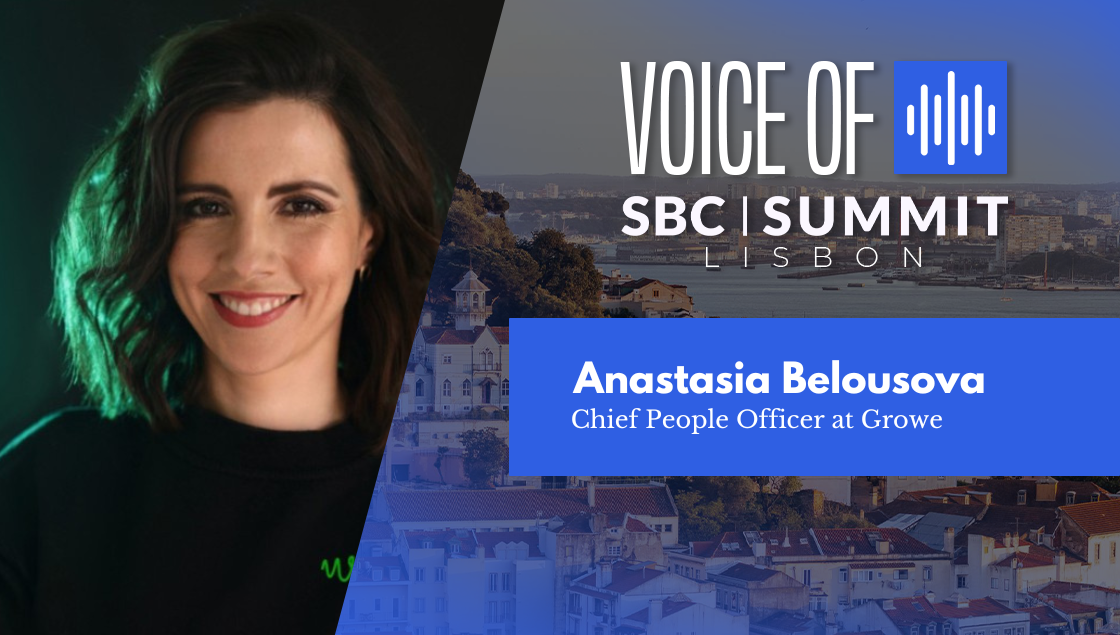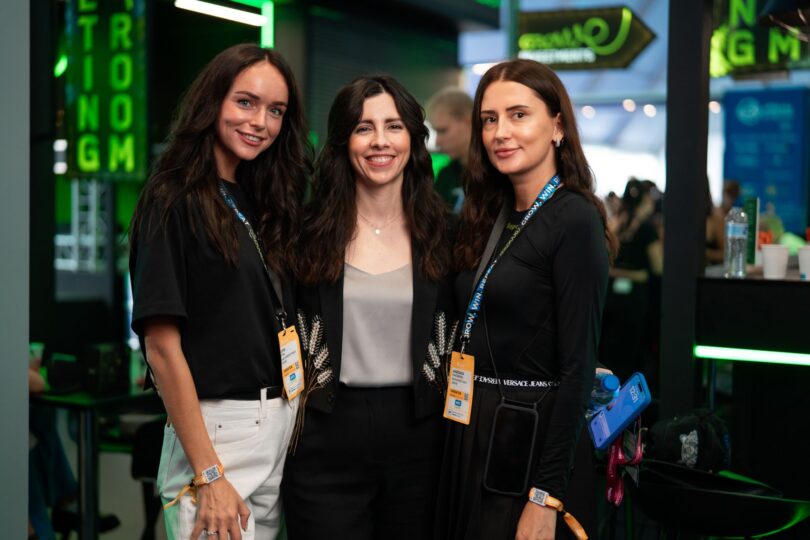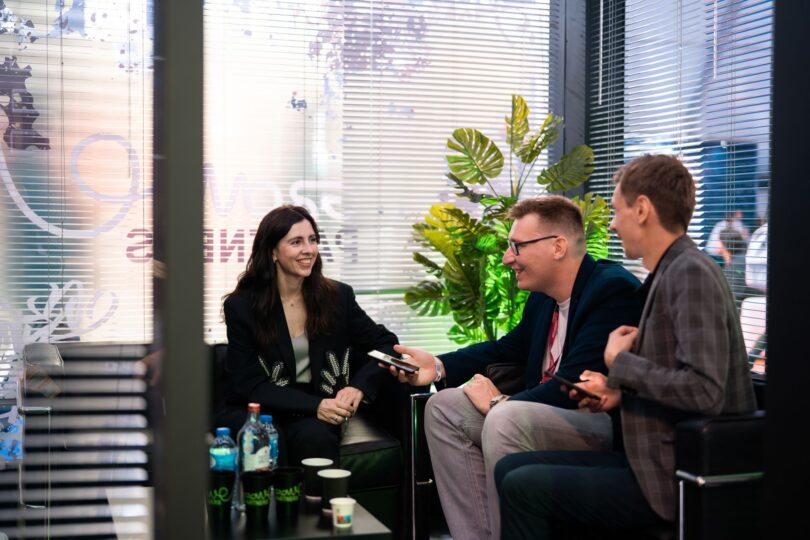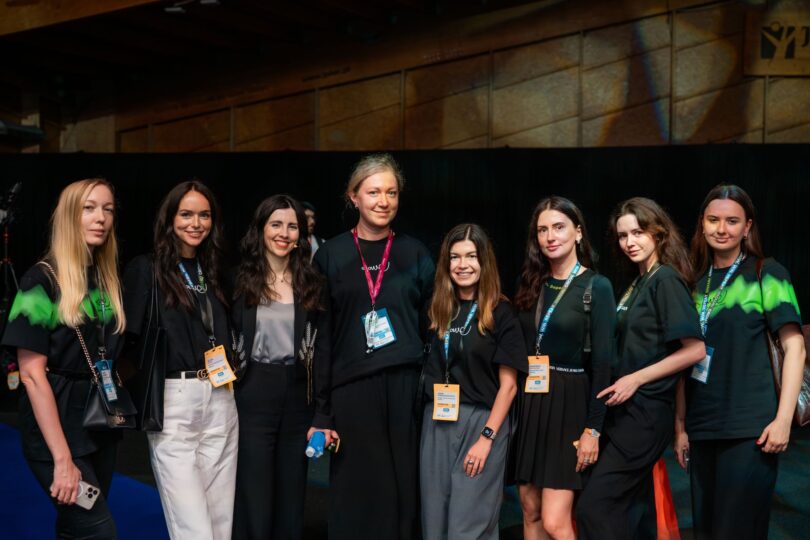Anastasia Belousova: Meta skills, in my view, are the real superpowers
We are catching up on materials from SBC Summit 2024 in Lisbon and publishing an interview with Anastasia Belousova, Chief People Officer at Growe, with whom we discussed the importance of soft skills and meta-skills in today’s work environment.

In your job, you’re focusing on soft skills and meta-skills. How do you define those?
Well, I can give you a brief of my presentation because that’s exactly what I’ll be talking about today. When I was preparing for this event, I asked my PR team, “Why do we need to talk about skills? Everyone’s already discussing them; there’s so much information out there.” But then, if you take a deeper look, soft skills, and meta-skills are at the core of the culture within any company or organization.
If we break it down, hard skills are the technical abilities you use to do your job—skills you know exactly how to apply. Soft skills, on the other hand, are about being a good colleague, a good teammate. In my presentation, I use an example: if a developer knows they don’t just need to write code but also understands they have deadlines and time management responsibilities (which is a soft skill), the job will get done on time.
Meta skills, in my view, are the real superpowers. These are the qualities that fuel collaboration, leadership, decision-making, adaptability, and flexibility. They are what allow us to navigate challenges, manage teams, and make difficult decisions. I believe we all possess these superpowers to some extent, and with the right focus, we can master, nurture, and develop them further.
Okay, so it sounds like soft skills and meta-skills really make a difference.
They do, they really do. Hard skills are about knowing how to do your job—it’s like learning how to read a book. We’ve all studied how to read, right? That’s a hard skill, knowing how to do something.

But how we analyze what we’ve read, how it influences our thinking, our mindset, and our lifestyle—that’s where soft skills and meta-skills come in. It’s the combination of those that makes the real impact.
What was the main challenge in expanding the scale of your company from 30 to 1000 employees?
The hardest and biggest challenge we’ve faced has been maintaining our core skills and values—the ones we believed were the most important from the very beginning. That’s the first thing. When you scale up so quickly and grow to such a large size, it’s crucial to ensure that the values you originally held as essential—let’s call them ABC—are communicated and shared with everyone who joins the company.
You have to figure out how to attract new people while keeping the existing team engaged and retained. It’s a difficult task, but it’s also a lot of fun because once you know what you need to focus on, it becomes more manageable.
Another interesting aspect of scaling, especially in relation to soft and meta-skills, is that you need to continually redefine them. These skills might remain the same, and that’s totally fine, but as a manager and leader, you constantly need to ask your team: “Do you still believe these skills are important? Do you still feel like this is what we’re working towards? Are these the skills we need to reach our goals as a company?”
How does your HR strategy align with your business goals?
In my opinion, and with over 15 years of experience in HR, the HR strategy doesn’t just run parallel to the business strategy; it’s always united with it. They don’t go side by side—they are intertwined. The business strategy and HR strategy must be one because for the business to accomplish its goals and achieve what it aims for, it relies on its fundamentals and core. And the core of any business is always its people.
With the rapid evolution of iGaming markets, how do you see the role of soft skills evolving in the next few years?
We will see tremendous evolution, especially with everyone talking about artificial intelligence right now, right? What we know for sure about AI is that it won’t replace humans, but it will reshape the roles humans play, guiding us to take on new tasks that need to be done.
Humans will have a fantastic opportunity to work alongside automation and new technologies to perform new tasks, elevate our skill levels, and become leaders in our respective markets. So, this is another step forward, like an upgrade for our skills.

If we only focus on hard skills, though, this progress won’t happen. In my view, hard skills will either be supplemented by automation and technology by at least 50%, or they’ll remain static with some minor updates. For instance, developers may need to adapt as coding languages evolve, and that’s fine. But, ultimately, it’s the team that drives success—a team of people who can collaborate, generate ideas, brainstorm, attend conferences, gather insights, and translate that into business strategy to push the company forward.
So, at the end of the day, it’s all about soft and meta-skills, without a doubt. Those are the key drivers.
We are at the SBC Summit in Lisbon. What do you think about this event?
Oh, the event is fantastic. I’ve been to similar niche events, but I haven’t attended this one in a while. Lately, I’ve been more focused on HR-related topics and areas, but I absolutely love it here. The vibe is great, and there are so many people from different places—I hear so many languages, and everyone seems really excited and engaged.

There’s a real buzz of activity. Before I met with you today, I had already had dozens of meetings. What stands out to me is that at past conferences, the discussions were mostly centered around business—how to do business, and how to handle certain aspects of it, which is, of course, important. But now I see a stronger focus on the person. People want to connect on a personal level first. It’s more like, “Hi, I’m Anastasia. Let’s grab a coffee and talk.” Then, later, the conversation naturally shifts to business. It’s refreshing to see that shift in approach.
